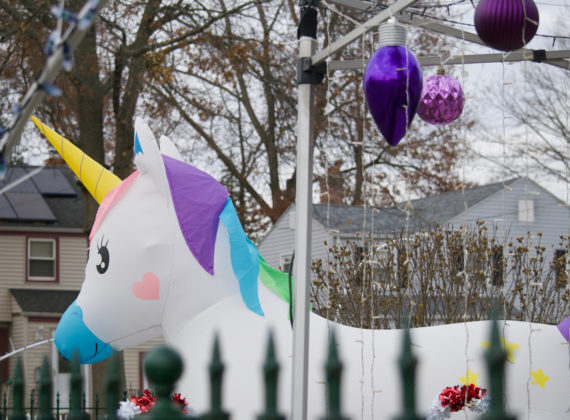
“We’re not asking you to speak for us. We can speak for ourselves,” said Jasmine Burnett of SisterSong and Trust Black Women.
In a time when progressive movements still lack diversity and many refuse to have meaningful conversations about privilege, such words are refreshing to hear.
Burnett was one part of the panel last Friday at La Paloma Sabanera; Denisa Jashari, Marie Lausch, Carmen Cordero, Roksana Mun, and Marissa Janczewska also presented on the history and current state of women’s oppression at the forum sponsored by Socialist Action. The opening and closing speakers were occasionally heavy on the socialist rhetoric, but those in the middle spoke plainly, with the intention of being understood by all.
Burnett, Cordero, and Mun approached the subject from a theory of intersectionality. Mun told the crowded coffee house about how 13,000 Muslim males have been deported due to special registration following September 11, 2001, and how this has put an economic strain on females left behind, who, sometimes for the first time ever, have to seek employment immediately, while also risking possible deportation. She explained how in the Jackson Heights area of New York, something like 90% of jewelery store workers are undocumented; because of their immigration status, they are exploited at work. In spite of this, Mun said that some women have been working within DRUM to organize for economic justice.
Cordero, of Hartford Vecinos Unidos, spoke about the “poor people’s organization” and how “our young people want to make a difference. They want to get involved. But at the same time, our young folks are in despair.”
She should be retired but says she wakes up every day compelled to remain active in the fight for justice, Cordero has been a grassroots organizer since the 1980s.
To give the audience — composed primarily of students from Trinity College and Central Connecticut State University — a sense of what poverty is like, even with SNAP, she asked what a person is supposed to do “if you can’t afford to buy your daughter tampons.”
Lausch, another experienced activist, said she was at the forum to speak about “the war on women.” Though focusing on how reproductive freedoms have been challenged or stripped in different states, she also talked about how she had been involved in strikes for pay parity. Lausch said that especially in times of economic depression/recession, workers are kept in line with threats of job loss.
But the forum did not feel like the women were only interested in pointing out the problems that exist. Burnett said, “we are clear that we have to turn our pain into our power.”
Part of the pain that Burnett spoke of was the way in which black women are not trusted to make decisions about their own bodies. She speaks more at length about this in the short film We Always Resist. An example given of the negative messaging about black women is the billboards that claimed “The Most Dangerous Place for an African American is in the Womb.”
When asked why politicians were eroding reproductive rights now, Burnett said it was “to preserve their power. They’re trying to protect their privilege.” Lausch said that it was part of the “divide and conquer” strategy.
Privilege can be found within progressive movements as well. Burnett talked about some troubling rhetoric used during the SlutWalk. She said she was generally supportive of this recent series of marches, but that there are race issues that must be addressed. At one, white women were carrying signs that read “Woman is the N* of the World,” which points to the need to talk about white privilege within the feminist movement.
When I asked the panel what is being done to address issues of race, sex, gender, sexuality, and class discrimination/prejudice within the Occupy movement, Burnett said she had not been involved in Occupy Wall Street because of precisely these issues, along with the connotation of “occupation.” Jashari added that “we have to look critically at [all of the Occupations].”
But immediately following this, when an audience member asked how Socialist Action is reaching out to and educating the “lower class,” with which he identifies, Janczewska corrected him, saying “we prefer to use the term ‘working class.'” When this Hartford resident’s question was not answered, he rephrased it, asking where were the people from the “North End, South End.” Jashari responded that his “question is right on point” and that “we have not been able to reach out to everybody.”
The evening’s message could be summed up in some of Jashari’s last words during the forum: “We can not sit back and wait for someone else to fight for our rights.”
